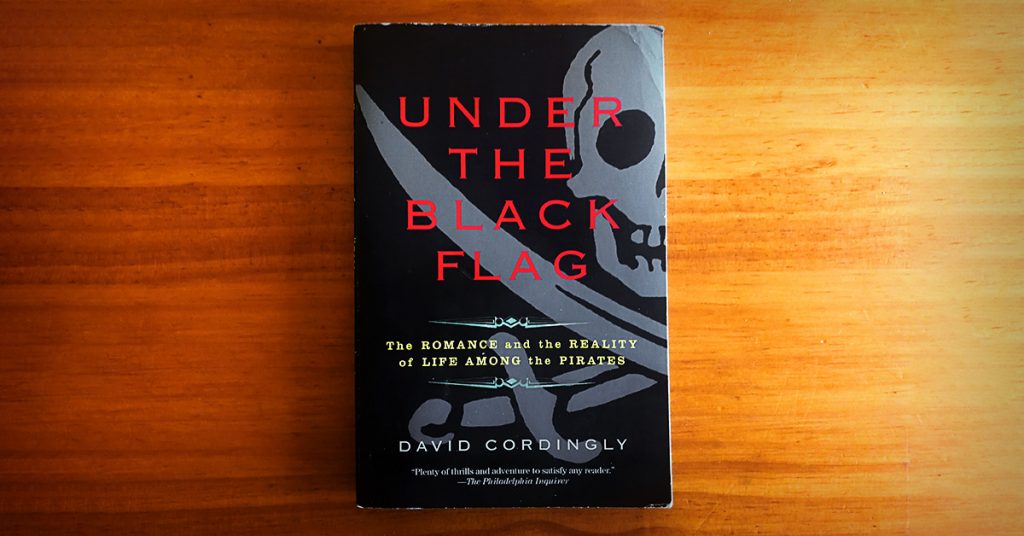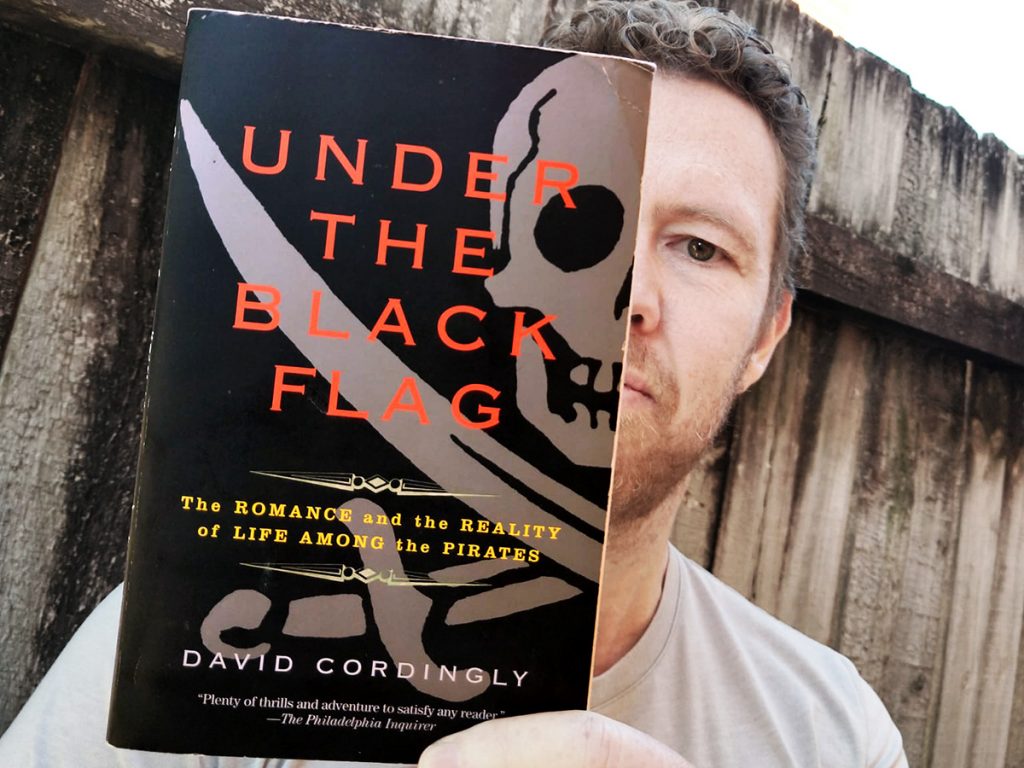
We all have a price. Each of us can be persuaded to compromise our sense of right or wrong if a reasonable sum of money or dream job is offered to us.
If you regard yourself as too decent to engage in immoral acts for financial reward, I suggest you simply have not received the right offer yet.
My price is much lower than most people. I would happily reject decency and stuffy civilization to feel the wind in my hair aboard a tall ship. Monetary reward in addition to this experience would simply be icing on a salty cake for me.
Thus, it is no surprise I like the idea of pirate as career choice. While respectable people question the morality of pursuing theft on the high seas, my first thought is: are pirate hours reasonable?
When I began the first chapter of Under the Black Flag by David Cordingly, I hoped I had discovered a pro-pirate book. I was ready to be regaled with thrilling stories that proved piracy was an excellent career choice.

This book certainly is filled with adventure and thrills but with each chapter I began to suspect the author was an anti-pirate propagandist. Rather than an unbiased account of pirates as self-motivated, high-seas entrepreneurs, David Cordingly has focussed on the downside of pirate life.
Those downsides, according to David Cordingly are alcoholism, scurvy, torture, ship wreck, imprisonment, and public hanging. The author tries to convince the easily swayed reader that those harsh conditions are what “successful” pirates can look forward to.
I was ready to slam the book shut in disgust after being subjected to page after page of pirate criticism. In a rare display of historical accuracy, the author presents two passages where he tries to explain why piracy appeals to some people.
Sailors were attracted by the tales of pirate kingdoms in Madagascar and the West Indies, where all men were equal, where everyone had a vote in the affairs of the pirate company, and where the plunder was fairly shared out. And for the more adventurous, piracy offered the chance to leave the gray, cold waters of the North Sea or the Newfoundland Banks and explore the warm blue waters of the Caribbean.
Cordingly, 1996
Finally! An honest take on why piracy is an aspirational career choice. The way ‘pirate kingdoms’ are run sounds like what democracy is meant to be but no longer is.
Also, consider this:
Some men were driven to piracy from sheer necessity. Two of the most dramatic increases in pirate activity took place when peace was declared after long periods of naval warfare and large numbers of seamen were out of work. When fifty years of hostilities between England and Spain were finally ended in 1603, hundreds of seamen from the Royal Navy and from privateers were thrown on the streets. Their only skill was in handling a ship, and many turned to piracy. For the next thirty years, shipping in the English Channel, the Thames estuary, and the Mediterranean was ravaged by pirates.
Cordingly, 1996
There you go. Pirate captains are not criminals. They are community minded business owners who perform a necessary service by hiring unemployed professionals. A pirate’s sense of social responsibility stands in stark contrast to governments who cavalierly discard once essential workers to fend for themselves.
If you can look beyond the author’s tiresome anti-pirate bias, Under the Black Flag by David Cordingly is a treasure chest of interesting material. As someone who appreciates pirates, I enjoyed reading about the career highlights of men such as Blackbeard, Captain Kidd, Sir Francis Drake, and the awesome female pirates Mary Read and Anne Bonney.

Thanks Tim. Now I am curious about the negative aspects of being a pirate. Can you tell me a little about that?